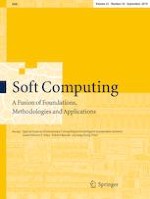03.09.2018 | Methodologies and Application
A new adaptive neuro-fuzzy solution for optimization of the parameters in the digital holography setup
Erschienen in: Soft Computing | Ausgabe 18/2019
EinloggenAktivieren Sie unsere intelligente Suche, um passende Fachinhalte oder Patente zu finden.
Wählen Sie Textabschnitte aus um mit Künstlicher Intelligenz passenden Patente zu finden. powered by
Markieren Sie Textabschnitte, um KI-gestützt weitere passende Inhalte zu finden. powered by
